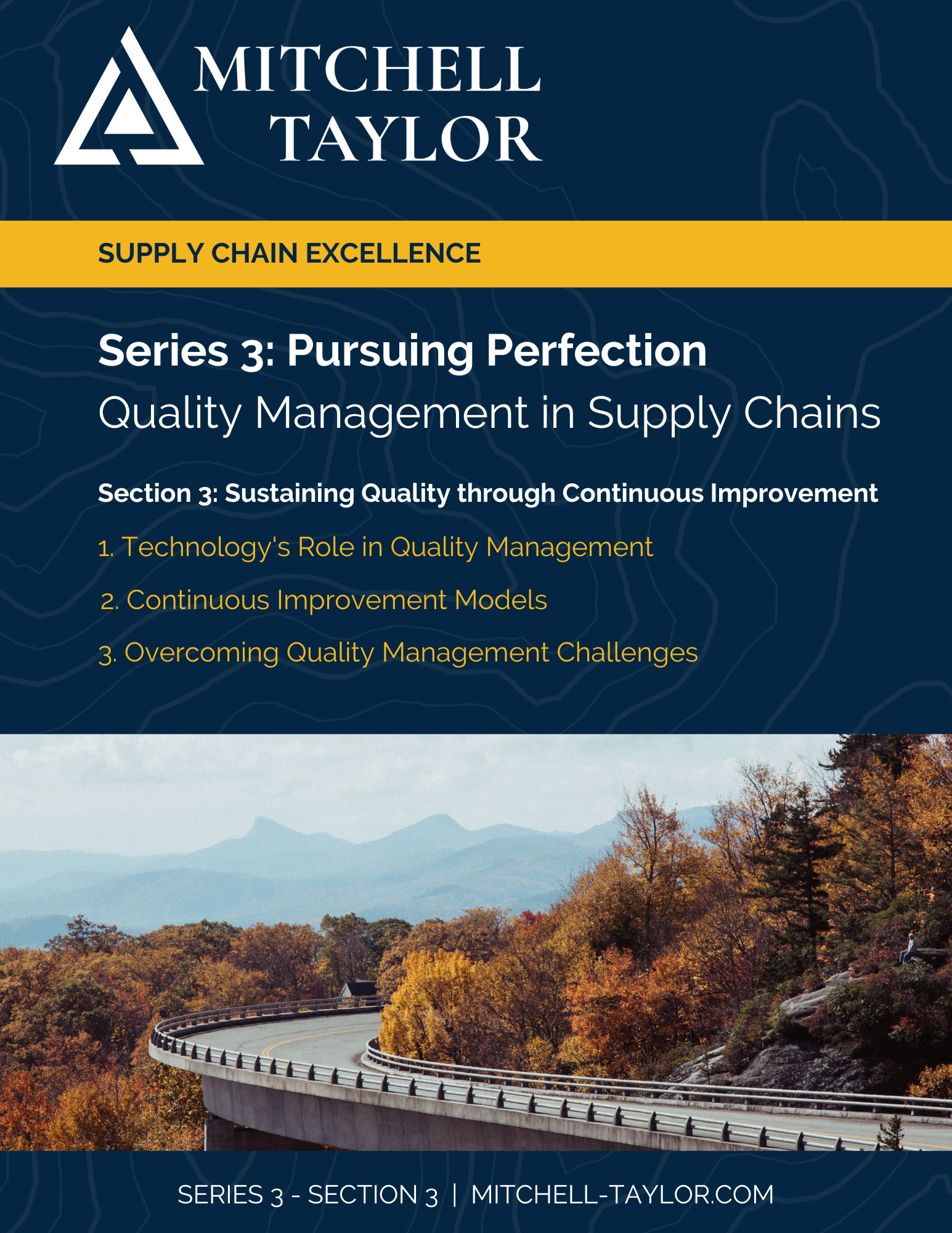Sustaining Quality through Continuous Improvement
Sustaining Quality through Continuous Improvement: A Supply Chain Imperative
In today's globalized and competitive marketplace, supply chain efficiency and product quality are inextricably linked. Consumers have high expectations, and even minor quality issues can damage brand reputation and erode customer loyalty. A 2023 McKinsey report found that companies with strong supply chain quality management practices experience 33% fewer stockouts and generate 10% higher margins. So, how can businesses ensure consistent quality throughout their supply chains while fostering continuous improvement?
This blog post dives into the power of technology, explores key continuous improvement models like Kaizen, and tackles common challenges faced in supply chain quality management.
Technology's Role in Quality Management: A Digital Ally
Technology has become an indispensable ally in the pursuit of quality excellence. Here are some ways technology empowers continuous improvement in supply chains:
Data Analytics: By leveraging powerful data analytics tools, companies can identify trends, predict potential quality issues, and make data-driven decisions to optimize processes.
Real-Time Monitoring: Advanced sensor technology and Internet of Things (IoT) applications enable real-time monitoring of production lines and inventory levels, allowing for early detection and rectification of quality deviations.
Quality Management Software: Specialized software streamlines data collection, facilitates non-conformance reporting, and automates corrective and preventive action (CAPA) processes, saving time and ensuring consistency.
Other Articles You May Be Interested In:
Continuous Improvement Models: The Power of Small Steps
Continuous improvement doesn't require dramatic overhauls. Proven models like Kaizen, a Japanese philosophy that emphasizes small, incremental changes, can be highly effective in supply chain quality management. Kaizen focuses on empowering employees to identify and address inefficiencies, leading to a culture of continuous learning and improvement.
Overcoming Quality Management Challenges: Building a Robust System
Implementing effective quality management practices can be challenging. Let's address some common hurdles:
Resistance to Change: A key challenge is overcoming employee resistance to new processes. Clear communication, training, and highlighting the benefits of quality improvement can help build buy-in.
Lack of Standardization: Inconsistent processes across the supply chain can lead to quality inconsistencies. Standardizing procedures and establishing clear quality metrics are crucial for maintaining consistent standards.
Limited Visibility: Without clear visibility into every stage of the supply chain, it's difficult to identify bottlenecks and potential quality risks. Investing in technology that provides end-to-end supply chain visibility is essential.
By embracing technology, implementing continuous improvement models, and addressing key challenges, businesses can build a robust system for sustainable quality management within their supply chains. This translates to increased customer satisfaction, reduced costs, and a competitive edge in the marketplace. Remember, quality is not a destination, it's a continuous journey - one that requires commitment, collaboration, and a relentless pursuit of excellence.



